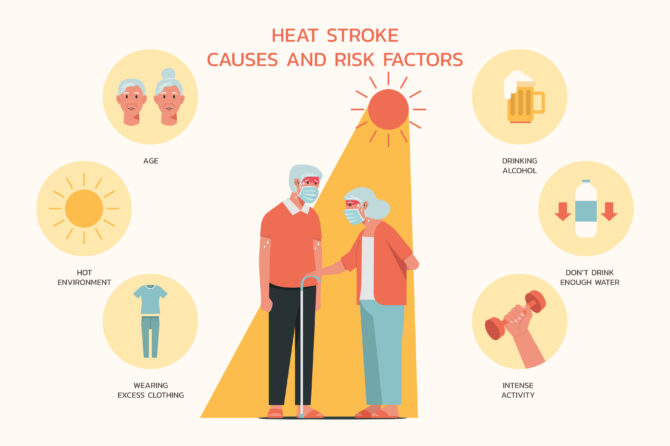
Vital Tips For Summer Safety: Keeping Our Senior Community Safe This Summer.
Summer is fast approaching and with it comes family vacations, outdoor barbecues, long days at the pool, and a lot more time outside in the sun. It’s a time to celebrate being with friends and family, but it’s also important to remember that summer brings unique challenges and dangers to seniors.
According to the Centers for Disease Control and Prevention (CDC), extreme heat caused a total of 10,527 heat-related deaths in the United States from 2004–2018. Those most at risk for heat illnesses and death are the elderly, children, and those with pre-existing medical conditions, so it’s also important to keep an extra set of eyes on your loved ones to ensure they’re staying safe.
What is Heat Stroke and How Do You Get Heat Exhaustion?
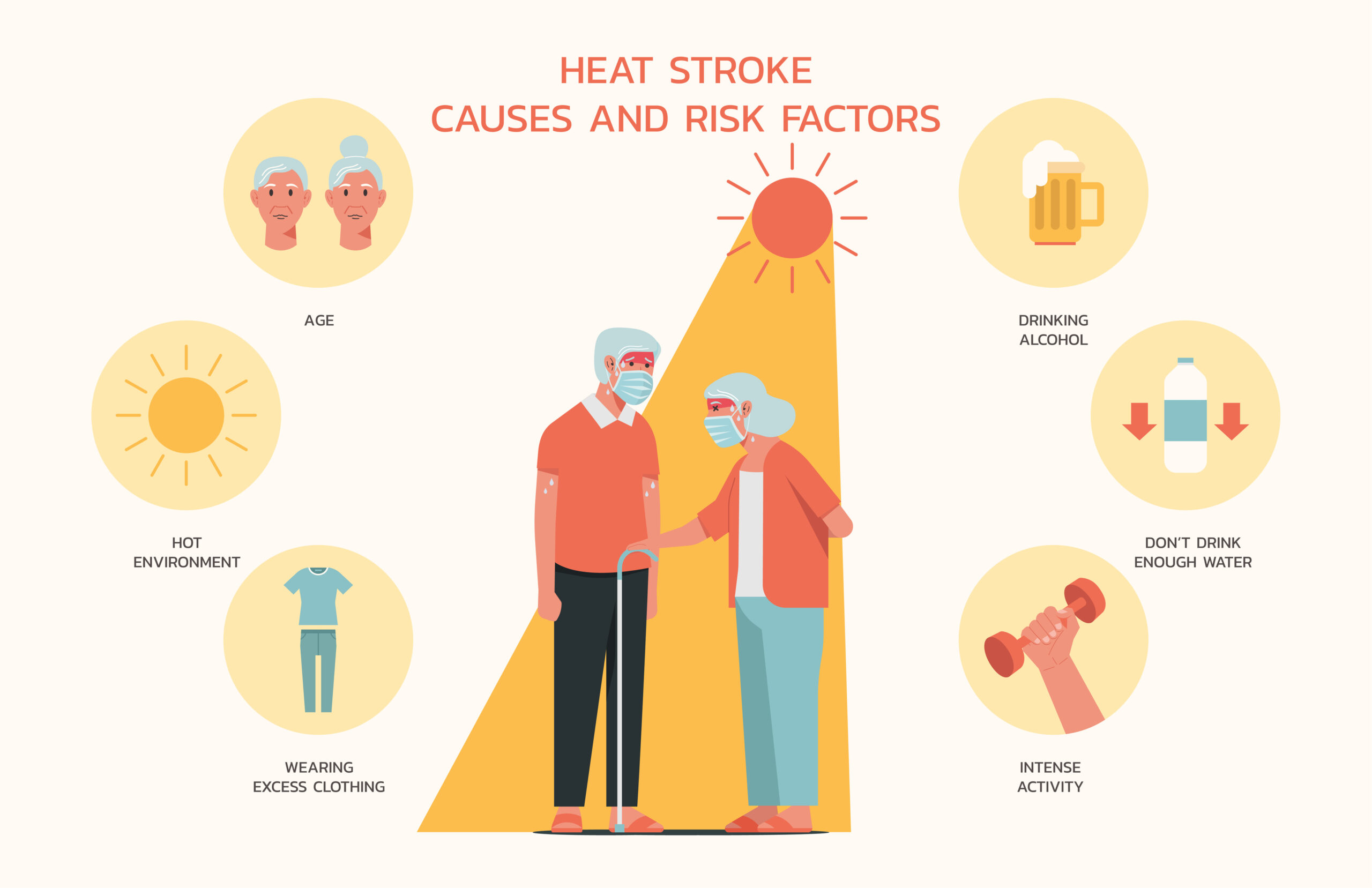
Heat stroke is a condition in which the body cannot regulate its own temperature, and may lead to death or permanent disability. Symptoms include a high body temperature above 103 degrees, dizziness, nausea, confusion, and unconsciousness. Your loved one may also have red, hot, and dry skin with no sweating and a rapid pulse. They could also have a painful headache. If you notice your mom or dad is experiencing a heat stroke, get them to a shady area and help cool them with whatever methods you know including putting them in a tub of cool water or a cold shower. Try to get their body temperature to drop to 102 or 101 degrees. Do not give them something to drink, and get them medical attention as fast as possible.
Heat exhaustion, on the other hand, is a milder form of illness that can occur after a few days of exposure to high heat without replenishing fluids. Signs include heavy sweating, paleness, muscle cramps, fatigue, weakness, dizziness, headache, nausea and vomiting, and fainting. Your loved one may have a fast and weak pulse as well as breathing, and the skin may be cool and moist. If you see mom or dad experiencing heat exhaustion, make sure they cool off through rest and by drinking cool, nonalcoholic beverages and remaining in a cool area. Seek medical help if symptoms worsen or persist over an hour.
HERE ARE 6 VITAL TIPS FOR SUMMER SAFETY
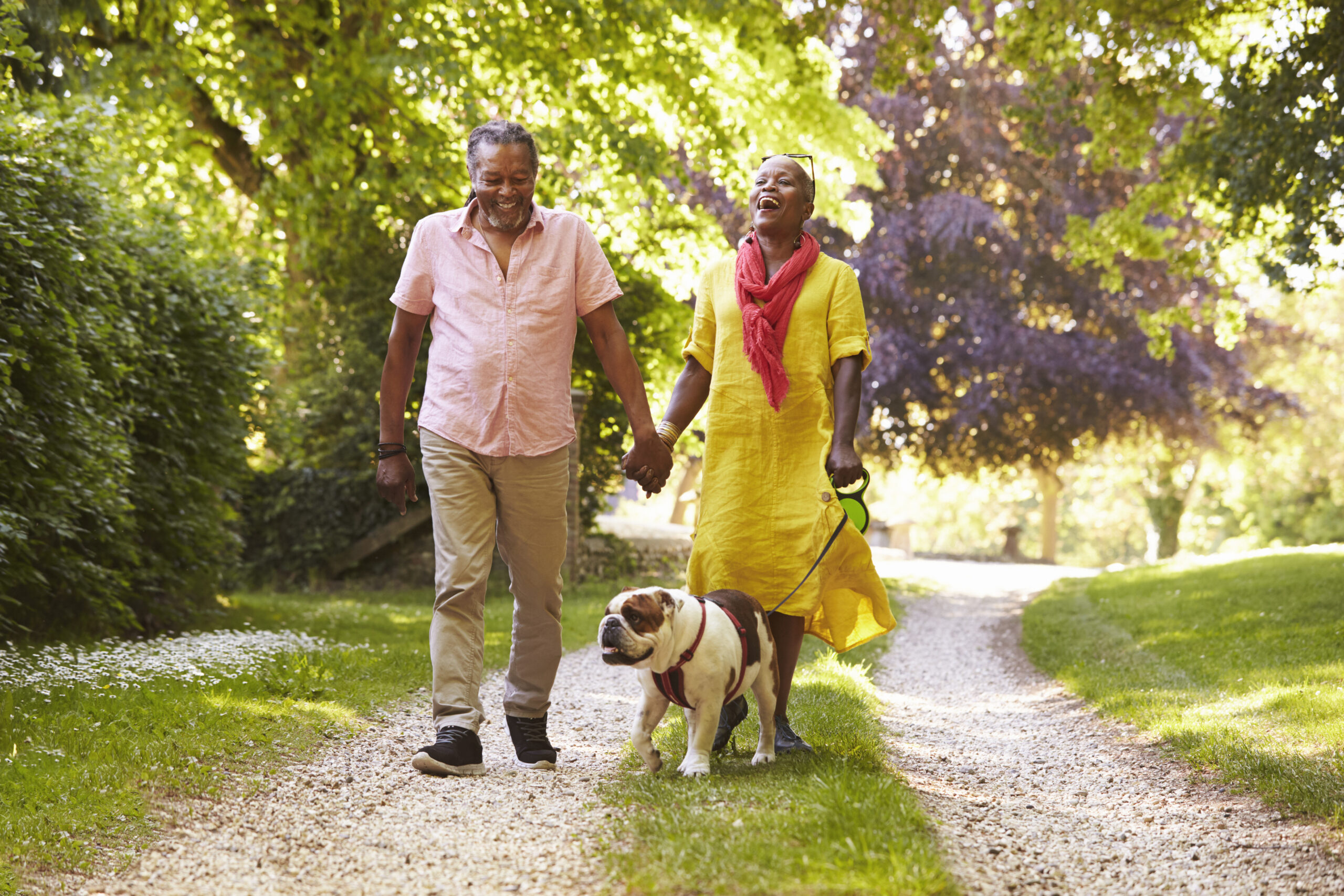
These six practical tips can help your Mom or Dad have a fun and safe summer!
1. ENCOURAGE MOM AND DAD TO CONSULT THEIR DOCTOR
Talk to your parents about the approaching heat and how their medications may be affected. Certain medications are affected by higher temperatures and need to be stored in cool places, which can be problematic for seniors without air conditioning. Other types of medication require seniors to stay out of the sun. Be sure to consult your parent’s physician and read labels on medication to stay safe and keep medications working as they should.
2. BE AWARE OF THE TEMPERATURE
When the temperature soars, find ways to stay cool. Shopping malls, senior centers, movie theaters, and libraries all maintain a cool temperature throughout the summer and can be a great way to get out of the house without exposure to heat. Remember studies have shown that even a small increase in temperature can shorten the life expectancy for older adults with a chronic medical condition.
3. WEAR APPROPRIATE CLOTHING
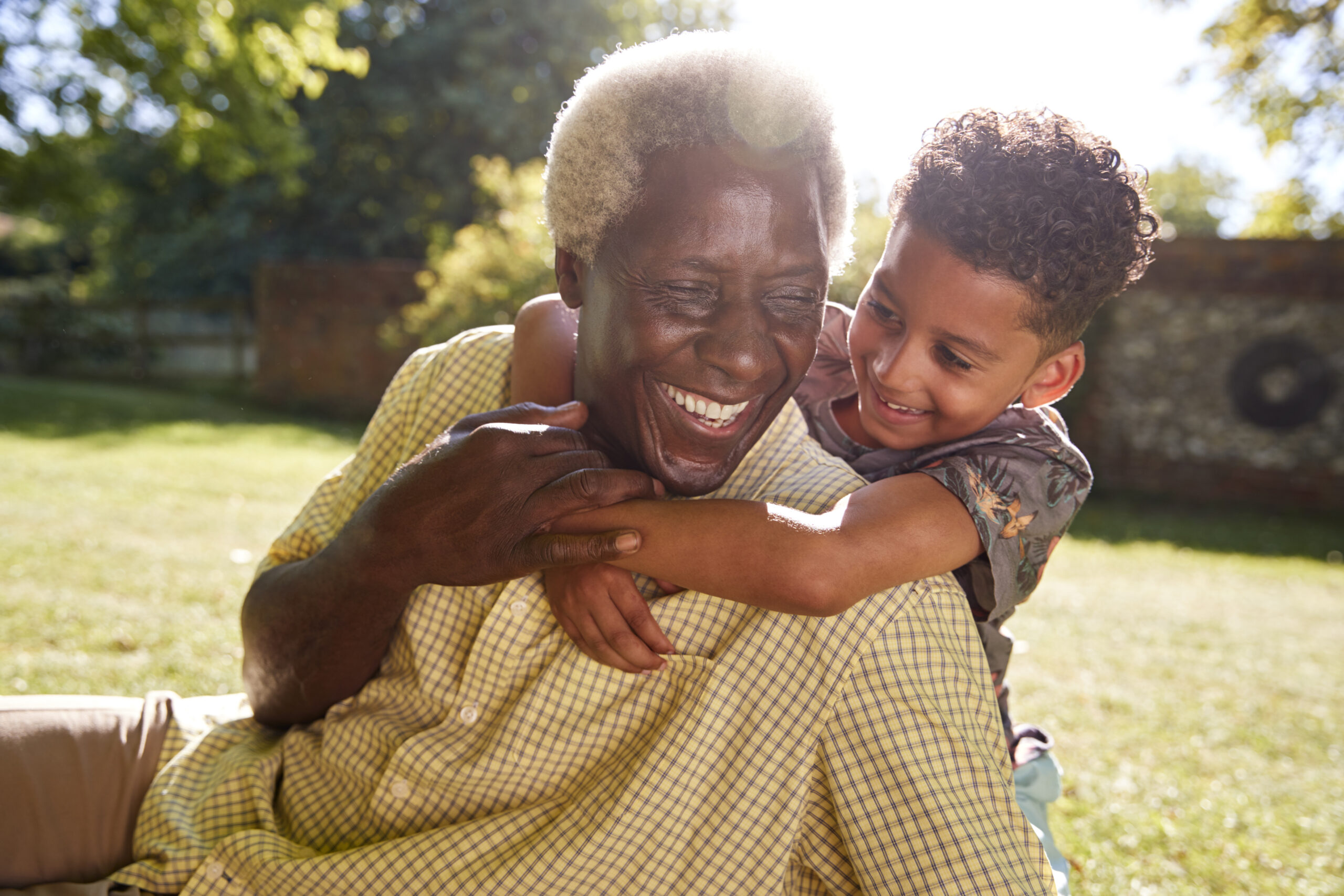
Stock your summer wardrobe with natural fibers, like cotton, that tend to be cooler than synthetic fibers. Light colored and loose-fitting clothing can help you stay cool and be comfortable. Don’t forget sunscreen, sunglasses, and hats to keep the sun off your face and skin.
4. KNOW THE SIGNS OF HEAT STROKE
Abnormally high body temperatures are common in the summer and result in a condition known as hyperthermia. Heat stroke is an advanced form of hyperthermia that can be fatal. Knowing the warning signs of hyperthermia can help prevent heat stroke. Get medical attention immediately if your parent or a loved one experience these symptoms:
- Fainting
- Not sweating
- Heavy breathing
- Rapid pulse
- Headache
- Nausea and vomiting
- Dry, flushed skin
- A sudden change in behavior (confusion, agitation)
- Body temperature higher than 104 degrees
5. STAY HYDRATED
Seniors like your parents are more susceptible to dehydration because as they age, they lose the ability to conserve water. They also can become less aware of their thirst and have difficulty adjusting to temperature changes. Remember to drink water often, and be sure to pack some for those long summer drives. Avoid soda, coffee, and alcohol which can be dehydrating.
6. STAY CONNECTED
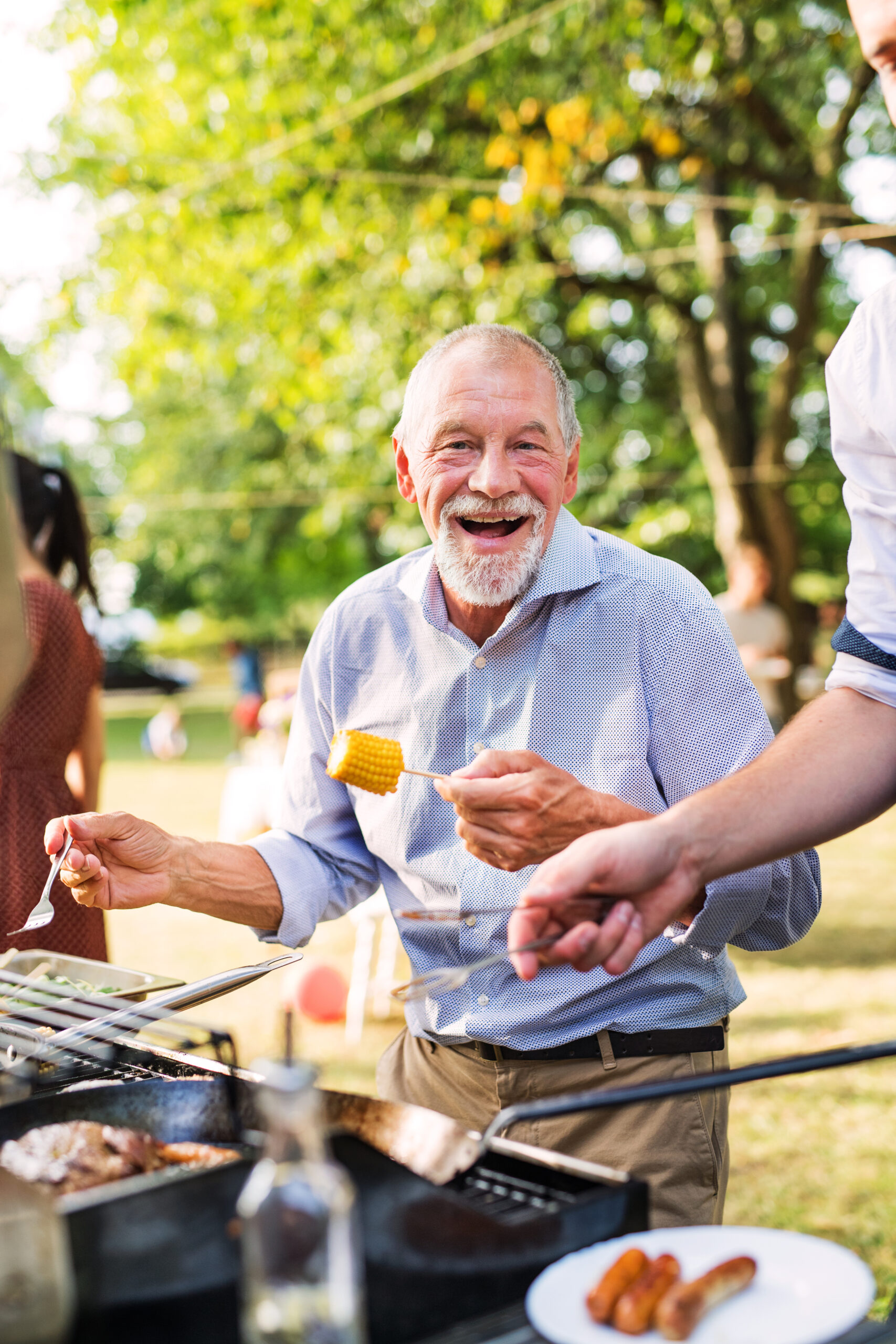
If your parent loves the outdoors and is planning on spending the day outdoors gardening or hiking, ensure that they let a family member or friend know so that they stop by and check-in regularly. The heat can isolate seniors and regular contact can help ensure their safety.
At Assured Quality Homecare we regularly train and educate our caregivers and nurses about seasonal changes and the dangers that come with those changes. We empower our caregivers with various resources so that they can assist our senior community and keep them safe.
To find out more about Assured Quality Homecare’s commitment to being the Gold Standard in homecare, please visit www.asqhomecare.com or call (860) 373-0428.
